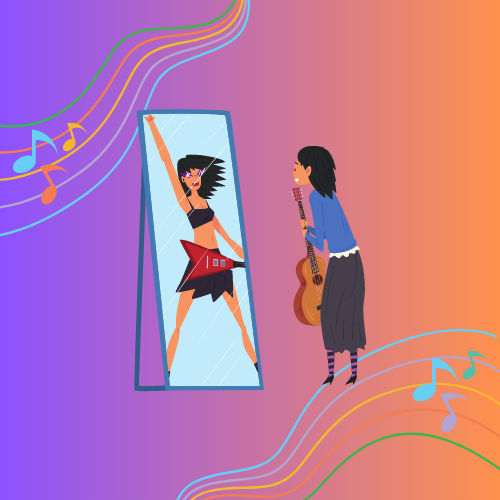
As figures who spend their entire professional careers basking in the limelight, artists cannot always control the way they are perceived. To better shape their public identity, many artists have turned to creating alter egos—whether it’s for the purpose of protecting anonymity, personifying their art or something in between.
An artist’s alter ego often signifies a hallmark moment in their development—a reflection of their character into music that will be revered for years to come.
In contrast to a stage name, which are monikers that an artist may use when performing or signing record labels, alter egos grow to become synonymous with the artists themselves; an alter ego portrays a persona the artist deems better represents their identity or their musical talents.
This form of self-mythologizing has been prevalent in the music industry for decades, from The Beatles’ creation of Sgt. Pepper’s Lonely Hearts Club Band to David Bowie’s ability to craft his own narrative as Ziggy Stardust to Eminem’s trademarked Slim Shady.
These alter egos sometimes make appearances in music videos or even release albums of their own, producing a starkly different style than the artist’s usual personality or voice. Sometimes this distinction is subtle, and other times, it’s almost as if an entirely different artist has taken over the track.
American rapper and singer Tyler, the Creator is a modern epitome of alter egos. With every new album, Tyler, the Creator adopts a new personality — his most recent work “Call Me If You Get Lost” giving rise to Tyler Baudelaire and past works featuring alter egos including Ace, Wolf Haley, Flower Boy and IGOR.
Senior Makenna Leiby has been a fan of Tyler, the Creator’s music for many years. “The characters Tyler creates leave me with a distinct impression of each of his albums. To entice fans to listen to new music, Tyler creates a new aesthetic for each of his albums. Therefore, each time I listen to a new Tyler the Creator album, it’s a different experience,” Leiby continued. “I never feel bored of listening to Tyler’s music because it often feels like I’m listening to a new artist when I alternate between his albums.”
To people unfamiliar with the alter ego phenomenon, it may be difficult to understand the true gravity of what these personalities provide for an artist. But the root of it lies in the artist’s ability to deeply immerse themselves in their art, forming deeper connections with their audience.
Like method acting to an actor, alter egos to an artist provide a form of creative liberation, a revolutionizing form of self-actualization that is also, conveniently, a great marketing scheme.
The rise of alter egos has paved the way for a new, more immersive wave of parasocial relationships, an epidemic that has already been on the rise due to public figures’ presence on social media platforms. Unlike public figures of previous generations, artists can now readily interact with their fanbase, and artists’ alter egos are only facilitating this one-way relationship.
Junior Ashwin Parab has witnessed the success that artists’ alter egos have created among their fanbase. “Alter egos have enabled people to jump on whatever trend is created by the artist. Especially with Taylor Swift, I’ve heard a lot of people say they’re in their ‘blank’ era or identify with particular albums more than others, which proves the effectiveness of the brand she has created for herself with every new album release,” Parab said.
However, artists’ alter egos have also come with their fair share of backlash. Recently, rapper Lil Uzi Vert divided his fanbase after debuting their alter ego Leslie Chow to the world in an Instagram post while at the Thailand Rolling Loud festival.
Many took to the comments section of the rapper’s posts to mock their new look, but some have wondered if this controversy is strategically planned for the release of their upcoming album, “Pink Tape.”
The marketing strategies and commercial success associated with alter egos have revolutionized the way artists are able to improve their brand: the artist themselves. As alter egos provide new opportunities for merchandise sales and create anticipation for new releases, the future of the music industry will be flourishing with more personalities than ever before.









